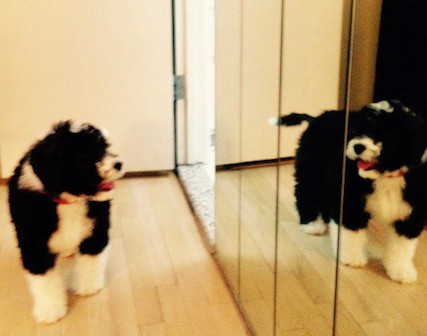A few ago, someone dear to me separated from her husband of 15 years. His wish to end their marriage came as a shock to her, and she was devastated.
In those first few months, I talked to her on the phone almost every day. Our conversations consisted of me listening to her obsess about the past, and recite from the self-help book she happened to be reading that day. A typical exchange:
She: “He said that he doesn’t want to be married anymore. What do you think that means?”
Me: “Um, I think the same thing I thought yesterday. I think it means he doesn’t want to be married anymore.”
She: “I think he could be having a midlife crisis. Let me read you the telltale signs.”
One day, in an effort to nudge her into the future, I asked her to make a list of the top ten places, anywhere in the world, that she’d like to visit. Her initial response was that she couldn’t afford to take a trip. I asked her to imagine where she’d go if money wasn’t an issue. She couldn’t think of a single place, but she did give me a laundry list of the sights her husband had always wanted to see.
We suddenly realized that she had become so invested in her husband’s hopes and dreams that she had completely forgotten about her own. It was an aha moment, but not the good kind.
With time and help, this smart, funny and beautiful woman rebuilt her life and recovered her sense of self. Her experience stuck with me and informed the way I thought about my own life and my work as a journalist and well-being advocate. It was clear to me that many people had the same issue — they were so focused on others that they had stopped, in ways large and small, living their own lives.
There are so many messages in the media about taking care of yourself, being yourself and relying on yourself. Those are important and valuable concepts, but there are so few messages about how to practically go about doing these things, particularly for someone who derives her identity, and happiness, from her relationships with others. Some of us so deeply fused with the people we love that it can be like an addiction. But we don’t need rehab; we need Me-Hab.
Me-Hab is for everyone who’s ever had the uneasy feeling that…
- She’s making decisions, big and small, without taking her own interests into consideration
- He’s abandoned hobbies that gave him pleasure and a sense of accomplishment
- She’s more familiar with her boyfriend’s likes and dislikes than her own
- He longs to travel the world but spends all his vacations in theme parks
- She’s too busy caring for others to safeguard her own health and finances
- She’s not playing the starring role in her own life
Sound familiar?
So, this is usually the part of the article where the guest expert weighs in on the issues and advises readers to practice more self-care and perhaps find more time for meditation. Great advice, unless you’re up to your ears in other peoples’ problems and too frazzled to find the time or energy to do much of anything but stay vertical.
The truth is, you already know the best expert to guide you through the first Me-Hab exercise. It’s you! And the exercise is something you can do on your phone and in your sleep — and probably have! When you have a second, standing in line at the DMV, waiting for the the chicken to defrost , start a list. The kind of list you write for the babysitter or the pet-sitter or even the plant-sitter. Call it “The Care and Feeding of Me.”
Here’s the start of my list: “Heather prefers to be awakened very gently, with soft music — preferably instrumental, acoustic guitar is nice — and kind words. She does not like to be awakened by “Morning Joe” or sports news of any kind. Her favorite breakfast is eggs Benedict but without the English muffin and the Hollandaise sauce on the side…”
You get the idea. Work at your own pace. Elaborate at will. Don’t worry about what you’re going to do with this list for now. Just start creating it. And if you feel like it, share it with me. We’re all in recovery…

Originally published at medium.com


